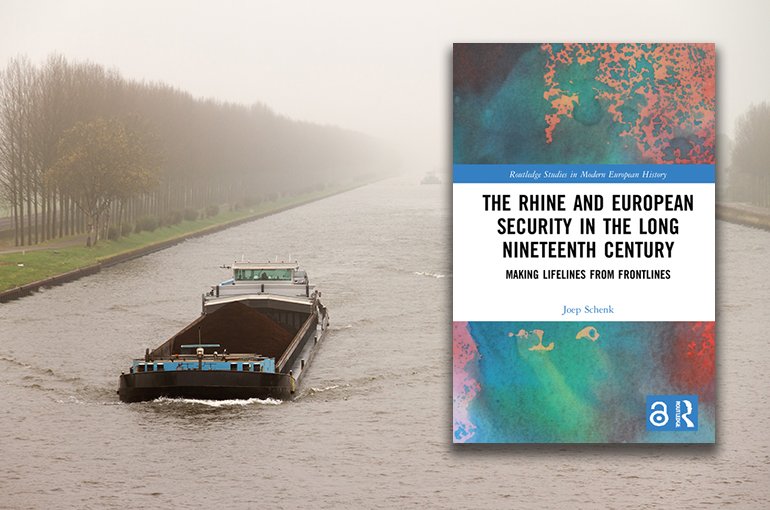The Rhine and European Security in the Long Nineteenth Century. Making Lifelines from Frontlines

While many place the origins of the United Europe as a peace and prosperity project in the fifties, The Rhine and European Security in the Long Nineteenth Century. Making Lifelines from Frontlines, the new book by Joep Schenk (History and Art History), shows that the foundations of this project were laid much earlier, on 2 February 1815.

River politics
On that day, 206 years ago this week, delegates from the four great powers of France, Prussia, the United Kingdom and Austria met for the first time at the Congress of Vienna to negotiate the introduction of the principle of freedom of navigation on the Rhine. In 1815, the European powers considered international river politics indispensable for the commercial wellbeing and future security of the shattered continent.
The meeting resulted in a comprehensive list of conditions, which was incorporated into the Final Act of Vienna. But even more important was the establishment of the Central Commission for the Navigation of the Rhine immediately afterwards, consisting of delegates from the seven riparian states. The first (and still existing) International Organisation of Modern History was to be dedicated to the protection of the principle of free navigation on the Rhine.
The book examines how the most fundamental change in the history of international river management came about because of European security considerations.
Europese veiligheidsoverwegingen
The Rhine and European Security in the Long Nineteenth Century. Making Lifelines from Frontlines examines how the most fundamental change in the history of international river management came about because of European security considerations. It also shows how the Central Commission for the Navigation of the Rhine (CCNR) functioned as an ongoing experiment in reconciling national and common interests that contributed greatly to European welfare development over the course of the nineteenth century. The book shows that views and practices of safety in the nineteenth century as well as in the second half of the twentieth century cannot be understood without taking into account welfare considerations and welfare policies.

The study, which was part of Beatrice de Graaf's ERC project Securing Europe, fighting its enemies, made use of archives in Great Britain, Germany and the Netherlands, as well as the recently opened CCNR archives in France. The research was not limited to the usual suspects such as statesmen and high diplomats, but also zoomed in on less obvious actors such as experts, radicals, entrepreneurs and the delegates in the CCNR itself.
- Title: The Rhine and European Security in the Long Nineteenth Century. Making Lifelines from Frontlines
- Author: Joep Schenk
- Publisher: Routledge
- ISBN: 9780367345761

